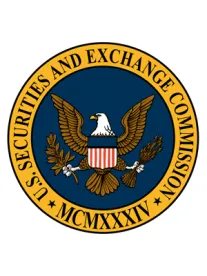Initial coin offerings (ICO) originally became popular because they appeared to hold the promise of easy access to capital, in exchange for a virtual token with some desirable function. For example, Playkey—an online gaming company—is presently raising money by selling tokens that will allow holders to access high powered computer systems for gaming. ICOs have raised more than $3 billion in 2017.
The tokens from these offerings can appreciate in value either because they are limited in number or because they are tied to the growth of the issuer’s enterprise. The Securities and Exchange Commission (SEC) has deemed the later kind of token to be a security. Accordingly, any entity seeking to offer tokens reflecting the value of the enterprise needs to follow the listing requirements under the Securities Exchange Act of 1934.
Clearly, the expense and effort involved in this process has slowed the ICO market. Entities seeking to conduct initial coin offerings often drop the idea once confronted with the time, expense and effort it will take to meet the Exchange Act’s requirements. The retrenchment in the ICO market is likely a good thing, however.
To begin with, startup companies may lack the type of controls and corporate governance needed to ensure that money is used for business purposes. Some have nothing more than a good initial idea, without the needed follow through to execute on that idea. As a result, fundraising by such companies without the disclosures required under, or the protections provided by, the Exchange Act can leave investors open to significant losses.
The strictures of the Exchange Act are intended to protect investors. The disclosures required by the Act provide critical business information needed to make an intelligent investment decision. Furthermore, the Act requires that offerors avoid materially false statements while raising money—including exaggerations of product adoption or technological success.
Tezos’ recent ICO, for example, was not registered under the Exchange Act and raised approximately $230 million in U.S. dollars. The offerors reportedly consider each investor to have made a “non-refundable donation,” rather than an investment. Now, there are rumors that the Tezos project is stalled by infighting and that reports of the adoption of its blockchain technology are greatly exaggerated. If the project fails, the investors may have a difficult time pursuing recovery from the offerors.
In short, SEC scrutiny into the ICO market is likely good for investors, although it will certainly slow the pace of tokenized fundraising.




 />i
/>i


